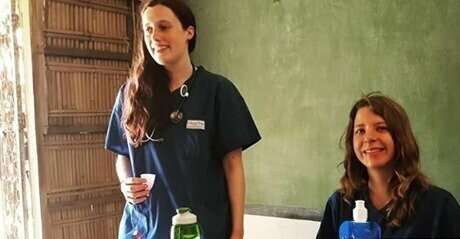A startling report was published by HM Inspectorate of Prisons on February 11th 2021 about the effects of restrictions imposed on prisoners in England since the start of the COVID-19 pandemic. Prisoners have had to spend 22 hours in a cell every day and have been unable to attend work, education, rehabilitation interventions or gyms, in an attempt to stop the spread of the virus. Visits from relatives and friends have also been suspended or highly restricted.
Saving lives
When the first lockdown was implemented back in March 2020, radical changes had to be made within the prison system as it was estimated that 2,000 prisoners could die from COVID-19. To an extent the measures have worked: the numbers of deaths has remained low thanks to the precautions.
The prisoners, made aware of the restrictions in the community, not only understood the necessity of prison lockdowns but also felt largely safe from the virus. As time has stretched on though, their mental strength to endure their restrictions has worn thin. Many desire the resumption of activities to make their lives meaningful again.
Price paid
The lasting psychological, physical and emotional impacts are already starting to show, with prisoners reporting an increase in self-harming behaviours, drug misuse, and deterioration in physical and mental health.
HM Chief Inspector of Prisons, Charlie Taylor, commented
‘The cumulative effect of such prolonged and severe restrictions on prisoners’ mental health and well-being is profound. The lack of support to reduce reoffending and help prisoners address their risk of serious harm to the public does not fill me with hope for the longer term […] Locking prisoners up in prolonged isolation has never been a feature of a healthy prison.’
The conditions many are faced with are not those you would wish upon anyone: eating meals in the same room as an unlidded toilet, inadequate ventilation, and often sitting alongside a cellmate. Those housed in single cells may not have the difficulty of being cramped in with another, but instead suffer the psychological impact of isolation and loneliness. These descriptions sounds more like those found in the detention centres of a low or middle income country, not the United Kingdom.
When allowed out of their cells for the daily activities of showering and exercise, there is a strict time limit. Many are frustrated that they don’t have long enough to complete these tasks.
Although the report does state that inter-prisoner violence has decreased, due to the reduction in face-to-face contact between prisoners, bullying and intimidation have increased.
And many prisoners have remarked on how underprepared they are for release into the outside world; without access to rehabilitation programmes or meaningful work, their chance of re-offending is far higher.
The solution?
The introduction of video calling and in-cell telephones have allowed some prisoners to remain in contact with their support networks. This may even be a post-pandemic solution for many isolated prisoners of the future.
The end of January saw eligible prisoners in England being offered vaccines, in line with the community rollout. This sparked some public debate as elderly & certain ill offenders will now be receiving vaccination before their (perhaps younger or fitter) victims in the community. That said, prisoners are not the only ones at risk within the prison system: prison staff are at risk and their representative bodies feel that both they and their prisoners should be higher up the vaccination queue.
Whilst individuals may disagree as to who should go to the top of the queue, there is common ground in the knowledge that we cannot fight this virus whilst fighting each other. We must act as a team to stop the spread and save lives.
The future
The longer-term impact of the restrictions imposed on prisoners is yet to fully come to light. However, this report has shown that - unless we act soon - many offenders are at risk of serious mental and physical deterioration. It is too soon to lift the restrictions without putting thousands of lives at risk. So, in order to emerge from this pandemic safely, we must look to vaccination as the way forward - in prisons as in the community.





